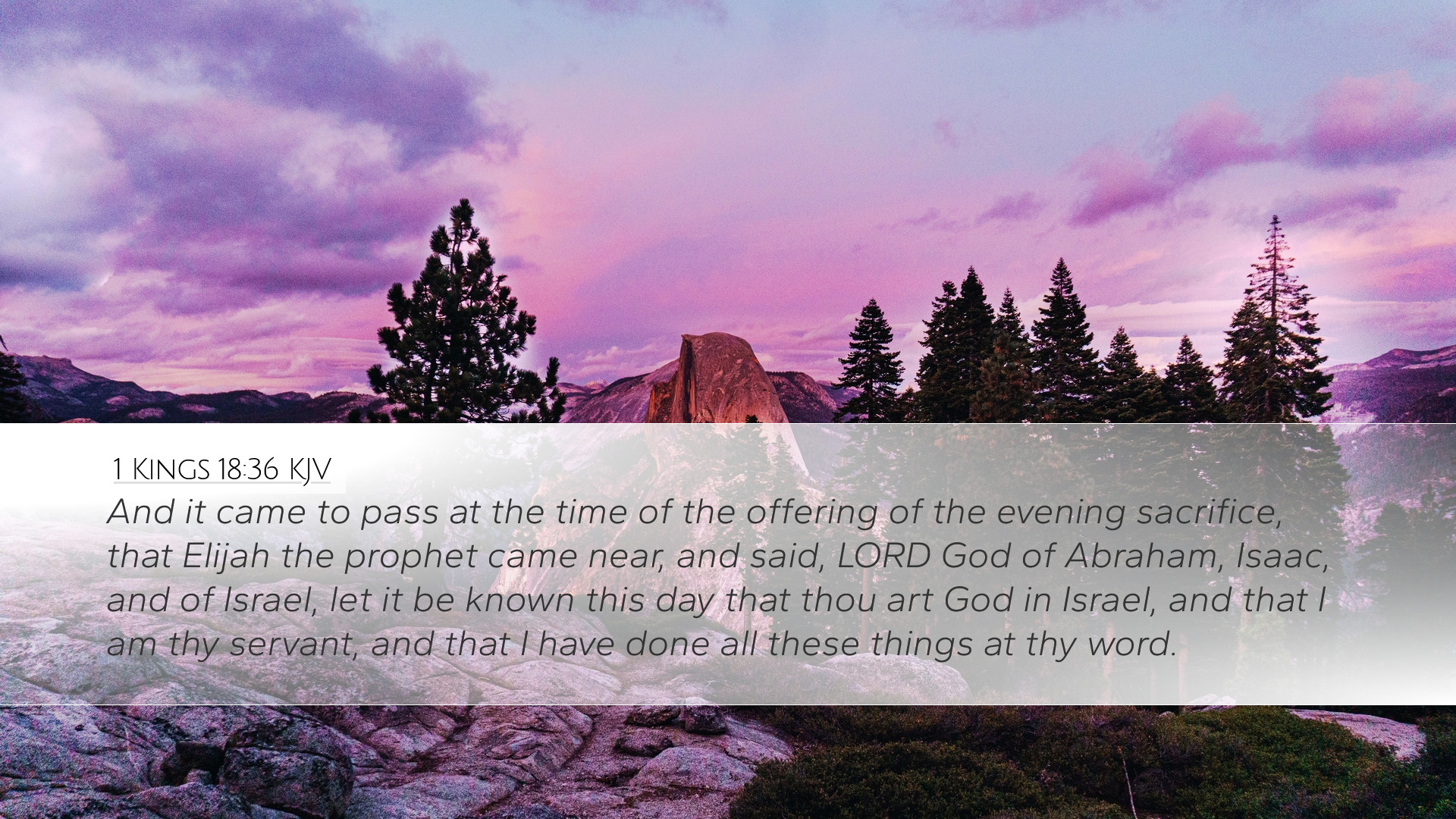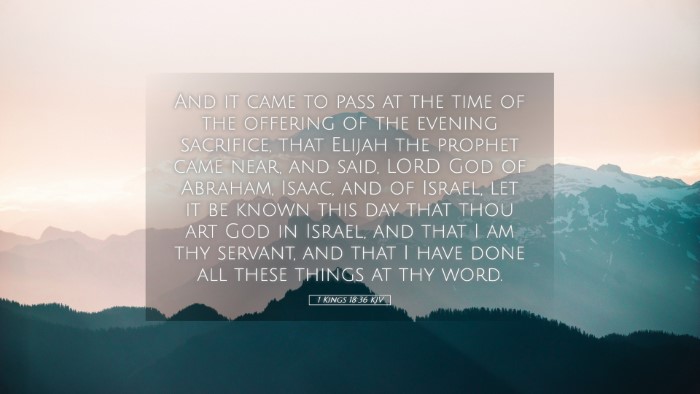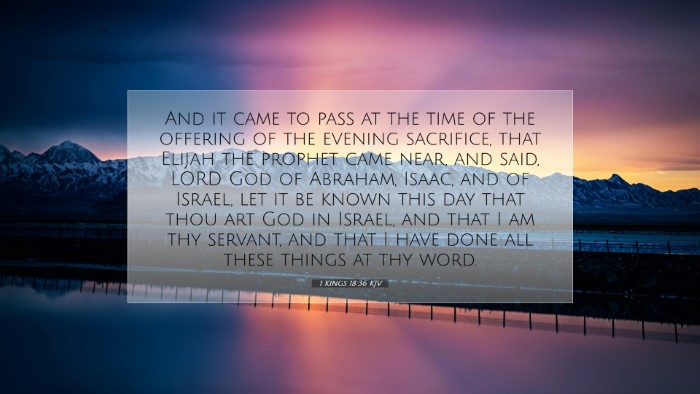Commentary on 1 Kings 18:36
Bible Verse: "And it came to pass at the time of the offering of the evening sacrifice, that Elijah the prophet came near, and said, Lord God of Abraham, Isaac, and of Israel, let it be known this day that thou art God in Israel, and that I am thy servant, and that I have done all these things at thy word."
Introduction
This verse captures a pivotal moment in the narrative of Elijah's confrontation with the prophets of Baal on Mount Carmel. It serves not only as a historical account but also reflects profound theological themes, such as divine identity, prophetic authority, and the relationship between God and His people. The interpretations from various commentaries, including those of Matthew Henry, Albert Barnes, and Adam Clarke, provide a multifaceted view of this significant moment.
Contextual Background
Elijah stands in a critical moment in Israel's history, where the worship of Yahweh was being challenged by the idolatrous practices surrounding Baal worship. This verse occurs in the broader context of a challenge to the prophets of Baal, showcasing God's sovereignty over Israel and the futility of idolatry.
Analysis of Key Themes
-
The Nature of God
Elijah's invocation of God as the "Lord God of Abraham, Isaac, and of Israel" underscores the covenant relationship that God has with His people. According to Matthew Henry, this explicit naming is a reminder of God's faithfulness to His promises. It emphasizes the historical continuity of God's work through the patriarchs, affirming that the God who acted in history is still active and present.
-
The Role of the Prophet
Elijah's declaration of himself as God's servant reflects the humility and obedience intrinsic to the prophetic office. Albert Barnes notes that true prophecy is marked by submission to God's will and authority. Elijah stands not for personal glory but to glorify God and prove His sovereignty over false gods.
-
The Evening Sacrifice
The mention of the evening sacrifice correlates significantly with worship practices in the Israelite tradition. Adam Clarke comments on how this timing emphasizes the restoration of proper worship, as sacrifices were intended to maintain communion with God. Elijah's timing also serves as a contrast to the chaotic rituals of the Baal prophets, reinforcing God's order over chaos.
-
Divine Revelation
Elijah's prayer is a plea for God to reveal Himself to the people of Israel. The phrase "let it be known this day" indicates a desire for clear, divine demonstration. Matthew Henry suggests that God’s revelation is not only for the sake of Elijah but for the entire nation, illustrating the theme of collective accountability and divine witness.
Theological Implications
This moment is a profound declaration of God's identity and the nature of faith itself. The insistence on God's action serves as an assertion that He is not a distant deity but one intimately involved in human history. The implications for modern believers are significant:
- We are invited to rely on God's power in our lives today as Elijah did.
- As representatives of God, believers are called to live in a manner that glorifies Him and reflects His sovereignty.
- The call for God to make Himself known is mirrored in the Christian call for the proclamation of the Gospel, seeking to reveal Christ to the world.
Conclusion
In conclusion, 1 Kings 18:36 encapsulates not just a confrontation between Yahweh and Baal but a deeper theological reflection on the nature of God, the role of His servants, and the dynamics of faith and worship. The insights garnered from Matthew Henry, Albert Barnes, and Adam Clarke collectively enrich our understanding of this text. For pastors, students, theologians, and Bible scholars, this verse serves as a powerful reminder of the call to proclaim God's sovereignty and to witness to His faithful actions throughout history.


